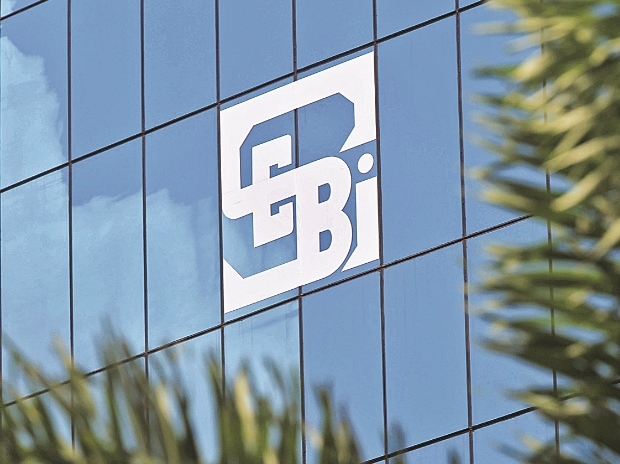SEBI to Ease Proposals on Mutual Fund Fee Structures, According to Report

SEBI to Ease Proposals on Mutual Fund Fee Structures, According to Report
According to two sources with direct knowledge of the matter, India’s markets regulator is considering two options to modify its earlier proposal of imposing a standard investor fee on mutual funds. The aim of these modifications is to mitigate the potential impact on the profitability of the country’s asset management industry, which is valued at 44.3 trillion rupees (approximately $537.75 billion).
The details of the two options have yet to be disclosed in the information provided. However, the regulator is carefully considering the implications of its initial proposal and seeking alternative approaches that strike a balance between investor protection and the financial health of the asset management industry.
Following resistance from the asset management industry, the changes to the proposal for a standard investor fee on mutual funds are expected to be presented in a discussion paper. The discussion paper, which is likely to be issued in the coming weeks, will serve as the initial step in the regulatory process for implementing the changes.
The sources providing this information chose to remain anonymous since they were not authorized to speak to the media. As of now, the Securities and Exchange Board of India (SEBI) has not responded to media inquiries regarding the matter.

According to the sources, the regulator is considering allowing mutual funds to charge higher fees that encompass all expenses, including brokerage and taxes paid by fund houses. This alternative approach aims to address concerns about the impact of the initial proposal on the profitability of the asset management industry.
As the discussion paper is released and further details emerge, industry stakeholders and investors will have an opportunity to review and provide feedback on the proposed changes. This process allows for a collaborative approach to refining regulations and achieving a balanced framework for the mutual fund sector in India.
According to the original proposal by SEBI, fund houses would have been permitted to charge a maximum fee of 2.55% of the assets under management (AUM), which would include all expenses, including brokerage costs. This proposal has drawn pushback from the asset management industry, leading to a reevaluation of the regulation and the development of potential modifications to strike a balance between investor protection and the industry’s profitability.
By considering alternative options, such as allowing higher fees to cover all expenses incurred by fund houses, SEBI aims to address concerns and find a more practical and feasible approach to regulating mutual funds in India. As the discussion paper is expected to be released in the coming weeks, industry participants and investors will have an opportunity to review and provide feedback on the proposed changes before final regulations are implemented.

The asset management industry presented its concerns to the regulator in June, expressing that the original proposals could substantially impact their profitability. According to the second source, the industry argued that the proposed changes would lead to a significant squeeze in profitability for almost all asset management companies (AMCs), ranging from 20% to 80%.
To address these concerns, one of the options being considered is to exclude brokerage and taxes from the calculation of the investor fees. By doing so, the overall fees charged to investors would be lower compared to the original proposal. This alternative approach is likely to be presented as part of the discussion paper, allowing for a comprehensive evaluation of both options and their potential implications on the asset management industry and investors.
The forthcoming discussion paper will serve as a crucial step in the regulatory process, enabling stakeholders to provide feedback and suggestions to find an optimal and balanced approach that addresses industry concerns while safeguarding investor interests.
According to the sources, arbitrage funds, which engage in frequent buying and selling of securities and consequently incur a higher tax burden, will have the option to choose the second proposal. This means they can opt for excluding brokerage and taxes from the calculation of investor fees, which will result in lower fees for investors.

Both options, i.e., allowing funds to charge higher fees covering all expenses, including brokerage and taxes, and excluding brokerage and taxes, resulting in lower investor fees, were discussed with an internal committee that is finalizing the rules. The meeting took place on July 21, indicating that the discussions are underway and the committee is actively considering the implications of both options before presenting the changes in the discussion paper.
By providing alternative options, the regulator aims to find a workable solution that accommodates the varying needs of different types of funds while maintaining the integrity of the mutual fund industry and protecting investor interests. The forthcoming discussion paper will be a crucial platform for further evaluation and input from stakeholders, contributing to the formulation of well-balanced regulations for the industry.
SEBI’s initial discussion paper on mutual fund fees, released on May 18, faced strong opposition from the industry, leading the regulator to postpone a decision on the matter until its board meeting on June 29.
Following the board meeting, SEBI’s chairperson, Madhabi Puri Buch, announced that a new discussion paper would be issued to address the industry’s concerns. The new paper is expected to incorporate modifications that would be more favourable to the asset management industry, potentially alleviating the challenges they expressed with the original proposal.

By revisiting the discussion and considering the industry’s feedback, SEBI aims to strike a better balance between regulatory requirements and the operational viability of the mutual fund industry. The new discussion paper will likely provide a platform for constructive dialogue and enable the regulator to arrive at a more widely acceptable set of rules and regulations regarding mutual fund fees.




